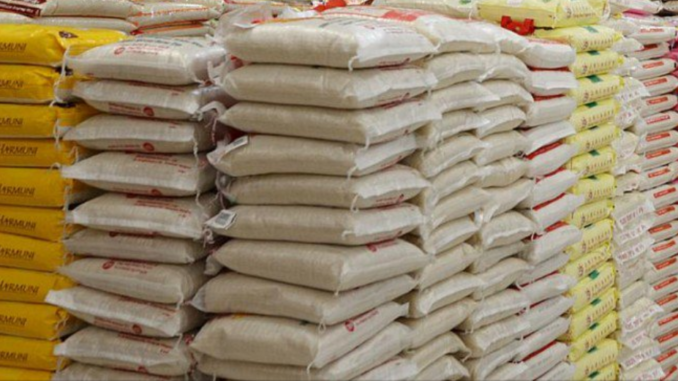
Out of 184 countries importing rice from Thailand, Benin Republic has consistently been the largest, fueling the argument that the country has done great damage to Nigeria’s economy through smuggling.
Benin Republic, with a population of about 12 million people, imports more than what China does, for instance. Data obtained by The Guardian from the Thailand Rice Export Association indicates that Benin Republic has consistently been the largest importer of rice from Thailand from 2017 to May 2019.
When compared with the most populous country in the world, Benin Republic imported nearly two million metric tonnes of rice in 2017 (1,814,014), while China imported 1,204,911.
In 2018, the country imported 1,603,285 tonnes while China imported 1,003062; and it imported 695,854 tonnes from January to May 2019 while China imported 205,830.
These tonnes of rice are allegedly repacked and smuggled into the Nigerian cities through the land borders. This has consistently posed threats to efforts of Nigeria to become rice-sufficient, and the new agreement will complicate the smuggling, experts have warned.
The second most populous country, India, imported 481 tonnes in 2017, 695 tonnes in 2018 and 362 tonnes in 2019 so far. Nigeria, which is larger than Benin Republic almost 20 times, officially imported 23,192 tonnes of rice in 2017, 6537 tonnes in 2018 and 2,380 tonnes so far in 2019.
The porous borders, stakeholders lament, filled the demand gap in Nigeria from Benin Republic. Regional Coordinator of the Africa Rice Centre, Ibadan, Dr Francis Nwilene, said while he was optimistic about the policy, the Nigerian government and its agencies such as the Nigerian Customs, SON, NAFDAC, and others had not proved ready for the more challenging tasks that might emanate from the agreement.
Describing impacts of smuggling on the economy, Kebbi State Chairman of the Rice Farmers’ Association, Mr Suaib Augie, said it is great sabotage to the current efforts to boost domestic production, insinuating that the agreement might compound the situation.
END

Be the first to comment